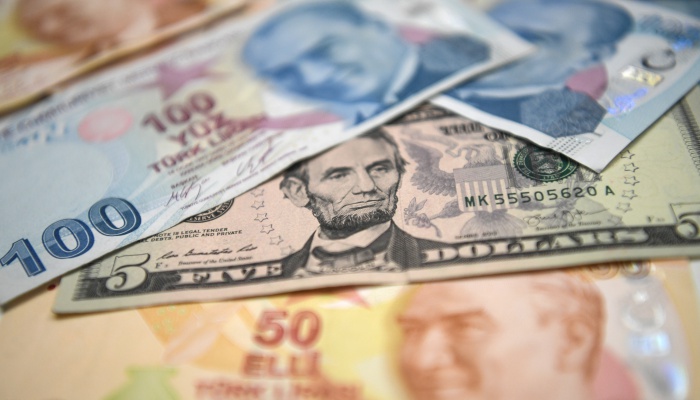With the lira’s losses this week, the Turkish currency is heading for its worst weekly performance since July 21 as higher-than-expected inflation combined with concerns about dwindling reserves weigh on the currency, Bloomberg reported on Friday.
Volatility is expected to remain high this month ahead of local elections scheduled for March 31.
The Turkish currency weakened 0.2 percent to 31.9536 per US dollar on Friday, extending its losses this week to 1.9 percent.
The one-month implied volatility of the USD-TRY currency pair, an expected gauge of volatility, has risen to its highest level in more than four months this week and is hovering near that level.
After last year’s sharp rise in the USD-TRY currency pair, the lira experienced a steady and gradual depreciation for most of February. The losses have accelerated this month as the decline in foreign reserves and higher-than-expected consumer price inflation, announced as 67.1 percent year-on-year for February, have put additional pressure on the currency ahead of the local elections. This pressure has prompted the Turkish central bank to take additional tightening measures, including a temporary cap on credit growth.
In an interview with CNN Türk on Thursday, Turkish Finance Minister Mehmet Şimşek spoke of “some uncertainty” ahead of the elections, but at the same time said the country would transition to an environment of less political uncertainty after the elections.
Inflation remains a pressing issue for President Recep Tayyip Erdoğan’s government ahead of the local elections.
His ruling Justice and Development Party (AKP) is trying to win back control of major cities, including İstanbul and the capital of Ankara, currently held by the main opposition party.
Erdoğan said Sunday that anti-inflation policies “will begin to be felt in practice towards the end of the year.”



